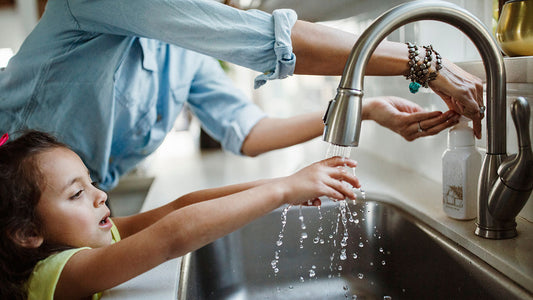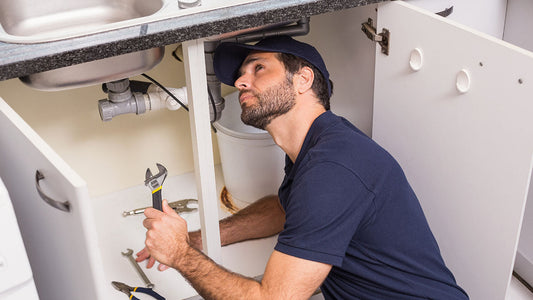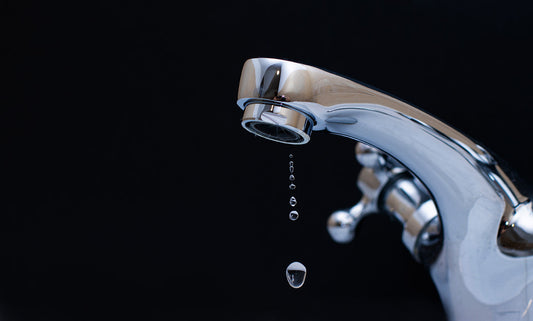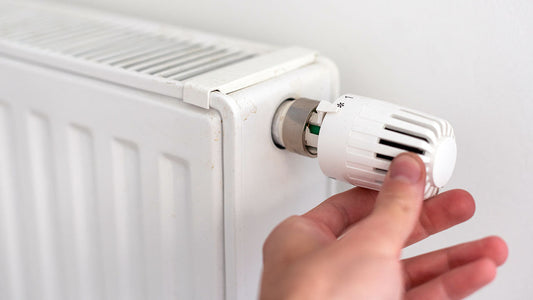
Plumbing Mistakes You Need to Avoid
Plumbing problems are a homeowner's nightmare. A leaky faucet can escalate into a flood, and a clogged drain can disrupt your entire household. While some plumbing issues require a professional, many can be avoided altogether with a little knowledge and preventative care. This blog post will highlight some common plumbing mistakes you need to avoid to save yourself money, stress, and potential water damage.
1. Flushing the Wrong Things:
This is perhaps the most common and easily avoidable plumbing mistake. The only things that should be flushed down your toilet are human waste and toilet paper. Everything else, including "flushable" wipes, paper towels, cotton balls, feminine hygiene products, diapers, and even dental floss, can cause clogs and wreak havoc on your plumbing system. These items don't break down like toilet paper and can accumulate in your pipes, leading to costly repairs. Dispose of these items in the trash, no matter how tempting it might be to flush them.
2. Ignoring Leaky Faucets and Toilets:
A dripping faucet might seem like a minor annoyance, but it can waste a significant amount of water and drive up your water bill. A constantly running toilet can be even worse. Ignoring these leaks not only wastes water but can also lead to more serious problems like mold growth and water damage to your floors and walls. Address leaks promptly, whether by tightening a loose connection or replacing a worn-out washer. Even a small drip can add up over time, so don't delay repairs.
3. Over-Tightening Plumbing Connections:
While it might seem logical to tighten plumbing connections as much as possible to prevent leaks, over-tightening can actually damage pipes and fittings. Over-tightening can strip threads, crack pipes, and make future repairs more difficult. Hand-tightening is often sufficient for most connections. If you need to use a wrench, do so carefully and avoid applying excessive force. A good rule of thumb is to tighten until you feel resistance, then give it just a little bit more.
4. Using Chemical Drain Cleaners:
Chemical drain cleaners are often marketed as a quick fix for clogged drains, but they can do more harm than good. These harsh chemicals can corrode pipes, damage seals, and even harden the clog, making it more difficult to remove. They are also harmful to the environment. Instead of resorting to chemical drain cleaners, try using a plunger or a drain snake to clear the clog. For stubborn clogs, consider calling a professional plumber.
5. Pouring Grease Down the Drain:
Grease, oil, and fat should never be poured down the drain. As they cool, they solidify and stick to the inside of pipes, eventually leading to clogs. Instead, pour grease into a container and dispose of it in the trash. You can also mix it with other food waste and compost it if you have a composting system.
6. Planting Trees Too Close to Sewer Lines:
Tree roots are attracted to the moisture and nutrients in sewer lines. As they grow, they can infiltrate and damage pipes, causing leaks and backups. When planting trees, especially large species, choose a location that is far enough away from your sewer line to avoid potential problems. Consult with a professional landscaper or plumber if you are unsure about the appropriate distance.
7. Neglecting Regular Plumbing Maintenance:
Just like your car, your plumbing system needs regular maintenance to prevent problems. Schedule annual inspections with a qualified plumber to check for leaks, clogs, and other potential issues. Regular maintenance can help identify and address problems early on, saving you money on costly repairs down the road. This includes checking water pressure, inspecting pipes and drains, and flushing your water heater.
8. DIY Plumbing Without Proper Knowledge:
While some minor plumbing repairs can be handled by homeowners, it's important to know your limits. Attempting complex plumbing projects without the necessary knowledge and experience can lead to costly mistakes and even damage your property. If you are unsure about how to proceed, it's always best to call a professional plumber.
9. Not Knowing Where Your Main Water Shut-Off Valve Is:
Knowing the location of your main water shut-off valve is crucial in case of a plumbing emergency. If a pipe bursts, you need to be able to quickly shut off the water supply to prevent flooding. Familiarize yourself with the location of the valve and make sure it is easily accessible. Show other members of your household where it is as well.
10. Using Abrasive Cleaners on Plumbing Fixtures:
While it might be tempting to use abrasive cleaners to remove stubborn stains from your sinks and faucets, these cleaners can scratch and damage the finish of your fixtures. Instead, use mild cleaners specifically designed for plumbing fixtures. A mixture of vinegar and baking soda can also be effective for cleaning many plumbing surfaces.
11. Ignoring Gurgling Sounds:
Gurgling sounds coming from your drains are a warning sign of a potential clog. Ignoring these sounds can lead to a full-blown backup, which can be messy and expensive to clean up. If you hear gurgling sounds, try using a plunger or a drain snake to clear the clog. If the problem persists, call a plumber.
12. Not Insulating Pipes in Cold Climates:
In cold climates, exposed pipes can freeze and burst, causing significant water damage. Insulating your pipes can prevent freezing and protect your plumbing system. Pipe insulation is readily available at most home improvement stores and is relatively easy to install.
By avoiding these common plumbing mistakes, you can keep your plumbing system in good working order and save yourself money, stress, and potential water damage. Remember, preventative maintenance is key to a healthy plumbing system. If you encounter a plumbing problem that you are not comfortable addressing yourself, don't hesitate to call a qualified plumber. They have the knowledge and experience to handle any plumbing issue, big or small. Taking care of your plumbing is an investment in your home and your peace of mind.













